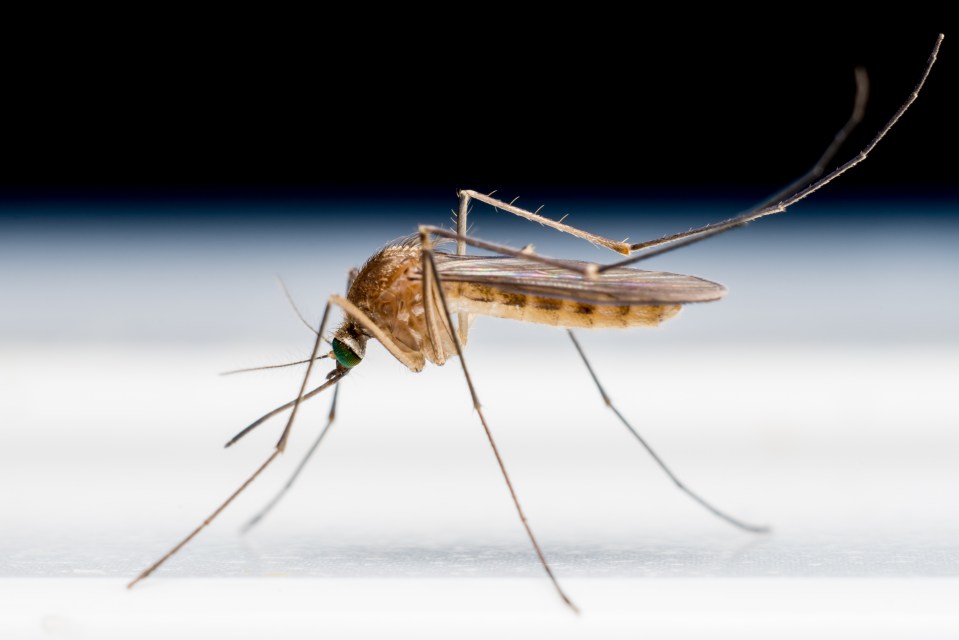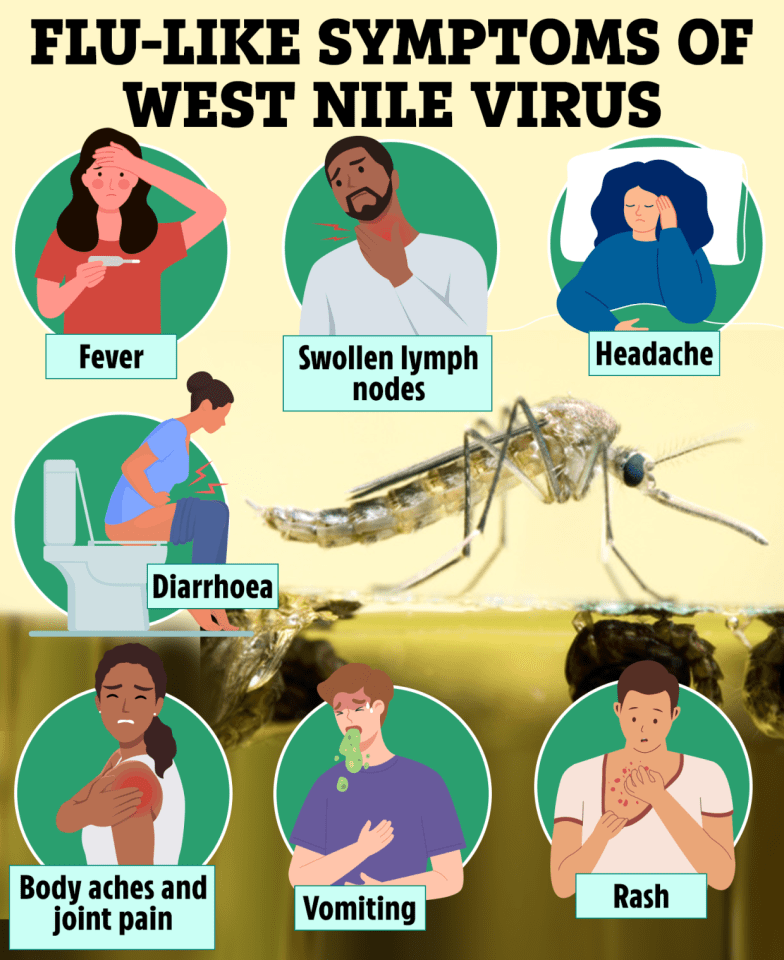A DEADLY bug that can be mistaken for flu has claimed dozens of lives in Europe this year as it edges closer to the UK.
West Nile virus has infected over 600 and claimed dozens of lives across the continent in just nine months, new figures reveal.
The threat feels closer than ever after the debilitating virus was detected in a mosquito on British soil for the first time.
For most people, the bug won’t cause symptoms at all, but some may be struck with flu-like aches and pains, headaches and fever.
However, around one in 150 cases can be severe – triggering life-threatening illness, like paralysis or even death.
Scientists identified fragments of the virus in the genetic material of UK mosquitoes for first-the time in 2023 – but only announced the discovery earlier this summer.
The bug is usually found in birds and circulates through bird-biting mosquitoes, but can be transmitted to horses as well as humans.
In the last 25 years, only seven cases have been brought into the UK by travellers – and none have caught it locally.
The warming climate has meant different species of mosquitoes, and the viruses they carry are able to survive on the British Isles, sparking fears killers like malaria could one day take hold.
The virus is already commonly found across Africa, Asia and the Americas, and has expanded in recent years to more northerly and western parts of Europe.
Since January 2025, nine European countries have reported 652 cases of West Nile virus, leading to 38 deaths according to infection data from the European Centre for Disease Control (ECDC).
Most infections were in Italy (500), followed by Greece (69), Serbia (33), France (20), Romania (15), Hungary (6), Spain (5), Albania (3) and Bulgaria (1).
Infection numbers so far in 2025 are already higher than the average for the past decade, the figures, recorded up to September 10 suggest.
But they remain below the surges seen in 2018, 2022 and 2024, years when more than 1,000 infections were recorded by this point.
But ECDC health chiefs warn this year’s tally may rise further as reporting is often delayed.
Cases of West Nile virus have been reported for the first time this year in the Italian provinces of Latina and Frosinone, as well as in Sicily, Calabria, Tuscany and Liguria.
In France, the first-ever infections were detected in Seine-Saint-Denis, Puy-de-Dôme and Vaucluse, while Romania recorded its first case in Sălaj County.
In a statement released on World Mosquito day last month, the ECDC said the outbreaks show the need for a robust and coordinated response to protect public health.
“As the mosquito-borne disease landscape evolves, more people in Europe will be at risk in the future,” said Dr Céline Gossner, Head of Section for Emerging, Food- and Vector-borne diseases at the ECDC.
This makes prevention more important than ever, both through coordinated public health action and personal protection measures,” she added.
“There is an urgent need to strengthen and scale up efficient, environmentally friendly mosquito control interventions,” she said.
What can I do to prevent mosquito bites?
The Fit for Travel website says if you are travelling to an area affected by diseases such as malaria, dengue fever and yellow fever, spread by mosquitoes, you should take action to protect yourself.
Some mosquitoes are more active in the day time while others at night – so it is important to protect yourself at all times.
It says: “If you develop a high temperature (fever) either during or after travelling to an affected area, you should seek medical advice as soon as possible and give details of your recent travel history.”
To protect yourself:
Use a good quality insect repellent
The higher the strength, the longer the repellent should prevent mosquitoes landing on you.
An effective repellent contains at least one of; DEET (50% concentration for areas where there is malaria), Icaradin/Picardin (at least 20% concentration, Eucalyptus citriodora oil, hydrated, cyclized (at least 30% concentration), IR3535 (but not for malaria areas).
Apply:
- On all areas of skin not covered by clothes
- After sun screen
- Regularly, particularly if you notice mosquitoes around you
- After swimming, washing or excessive sweating
- On the face, by spraying the repellent on the hands first
Loose clothing
Mosquitoes can bite through tight clothing, so loose-fitted clothing is ideal.
Consider a high neckline, long sleeves, long trousers and socks.
Remember to apply insect repellent on areas not clothed.
Mosquito nets
Mosquito nets can protect you at night when sleeping and are even better if treated with insecticide.
Check for any holes in the net before using it. If a hole is apparent, then this should be mended.
You should tuck the net under your mattress or ground sheet during the night, and either collapse it down, or keep it tucked up during the day to stop insects flying under and into the net.














